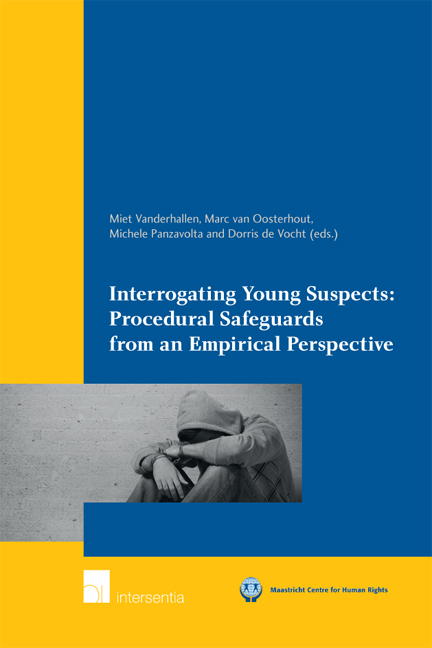Book contents
- Frontmatter
- Preface and Acknowledgements
- Contents
- List of Abbreviations
- Biographies
- Chapter 1 Introduction
- Chapter 2 Research Methodology
- Chapter 3 Belgium: Empirical Findings
- Chapter 4 England and Wales: Empirical Findings
- Chapter 5 Italy: Empirical Findings
- Chapter 6 The Netherlands: Empirical Findings
- Chapter 7 Poland: Empirical Findings
- Chapter 8 Integrated Analysis
- Chapter 9 The Guidelines
- Annexes
- Maastricht Series in Human Rights
Chapter 8 - Integrated Analysis
Published online by Cambridge University Press: 21 September 2018
- Frontmatter
- Preface and Acknowledgements
- Contents
- List of Abbreviations
- Biographies
- Chapter 1 Introduction
- Chapter 2 Research Methodology
- Chapter 3 Belgium: Empirical Findings
- Chapter 4 England and Wales: Empirical Findings
- Chapter 5 Italy: Empirical Findings
- Chapter 6 The Netherlands: Empirical Findings
- Chapter 7 Poland: Empirical Findings
- Chapter 8 Integrated Analysis
- Chapter 9 The Guidelines
- Annexes
- Maastricht Series in Human Rights
Summary
INTRODUCTION
The empirical study carried out in the five jurisdictions aimed to explore the nature of the interrogation of juveniles. Its goal was to examine to what extent the practice lives up to the existing legal frameworks, and, where possible, highlight good practices in the protection of the juvenile suspect during interrogation.
Merging the national findings of the empirical studies was indeed a difficult endeavour, not only for methodological reasons. The national experiences proved to be significantly different from one another, as they are inevitably affected by the surrounding legal framework and culture of each system. Nonetheless it was possible to highlight some recurrent themes in all the countries. In this respect it is important to observe from the outset that there is at times significant convergence in the experiences and opinions of the same group of respondents participating in the focus group interviews. The common function performed by the interviewees (or, in the cases of juveniles, the common experience of coming into contact with the criminal justice system) gives rise to experiences that are sufficiently similar to be compared across countries. The present chapter is intended to offer a comparative transversal overview of these different experiences and, insofar as possible, to combine the national findings into an integrated perspective.
The combined analysis also required that the empirical findings be tested against the underlying legal framework. The testing has been done according to a two-tier process: first, the relevant empirical findings have been measured against the national framework. Then, the transversal findings – which are presented in this chapter – have been evaluated in light of the differences/ commonalities between legal systems that had been highlighted during the legal study, presenting an integrated analysis in a legal thematic way. Inevitably, this chapter will summarise this process and only where relevant the empirical findings and the analysis will be discussed in light of the substantive legal findings.
The chapter is structured as follows. First it looks in general at the treatment of juveniles (paragraph 8.2), then it deals with the findings concerning the way in which juveniles are informed of their rights (paragraph 8.3). Next it formulates some reflections on the difficulties concerning the (lack of) assessment of the juvenile's maturity, health and fitness to be interrogated (8.4). The following paragraph (8.5) looks into the topic of assistance, first by a lawyer then by an appropriate adult (hereafter: AA).
Information
- Type
- Chapter
- Information
- Interrogating Young Suspects IIProcedural Safeguards from an Empirical Perspective, pp. 305 - 384Publisher: IntersentiaPrint publication year: 2016
Accessibility standard: Unknown
Why this information is here
This section outlines the accessibility features of this content - including support for screen readers, full keyboard navigation and high-contrast display options. This may not be relevant for you.Accessibility Information
- 2
- Cited by
